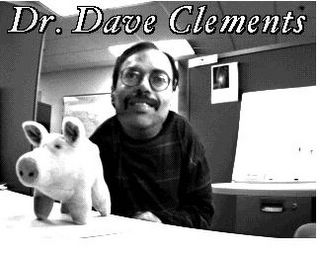Do the Poor Deserve Life Support?
That is the question posed by economist Steven Landsburg in an article he posted in Slate Magazine. Below is the letter I wrote to Mr. Landsburg in reply:
Dear Mr. Landsburg,
As a ventilator user for over 23 years, I read with interest your article in Slate Magazine (http://www.slate.com/id/2133518/) regarding whether or not the “poor” have a right to use a ventilator. Not surprisingly, I take exception to your claim that ventilator use is a choice which society should treat like an economic commodity analogous to buying milk.
I am a Muscular Dystrophy patient with weakened chest muscles that require me to use a ventilator to assist my breathing nearly 24 hours a day. I began using a ventilator in 1982, while attending graduate school at the University of California. After becoming ventilator dependent, I continued my education and the university awarded me a Ph.D. in English and American Literature. Since that time, I have worked for 12 years in the software industry. I currently am self-employed as a freelance writer and editor. Without the ventilator, I would not have been capable of accomplishing anything.
The (wrongful) implication of your article is that everyone who uses mechanical ventilation is a cancer patient lingering on the edge of death. Nothing could be further from the truth. Many people like me lead productive, active lives in the community—lives which would be cut short if ventilators were not made available. Do not conflate end-of-life issues with quality-of-life issues. Your article vaguely recalls (in tone if not in substance) the Terri Schiavo controversy. Yet, I must point out to you that Mrs. Schiavo did not use a ventilator.
Many ventilator users require the financial assistance of Medicaid (Medi-Cal in California, where I reside). Ventilators are expensive pieces of equipment, which private medical insurance frequently does not cover. Since Medicaid is a means-tested program, nearly every ventilator user in the country is technically “poor.” As I write this letter, I am a “poor” person breathing with a ventilator supplied through Medi-Cal. I agree with you that few healthy people would voluntarily set aside some of their income for ventilator insurance, yet most of them would spend every dime they have while lying, gasping for breath, in some sterile hospital room.
Is breathing a commodity? Is the very air we take into our bodies a commodity? Yes, taxpayers subsidize my ventilator use. I “ask someone else to come to the rescue” to the same extent you might if your house were on fire. Have you ever heard of John Locke? I assume you have.... All members of society engage in a social contract, else social Darwinism and an “all-against-all” mentality ensue.
You claim that, with the "house-on-fire" example, society should come to your rescue because it has an interest in protecting a whole class of people--those who live in your neighborhood whose house might catch the flame from yours. But, what if your house resides on 40 isolated acres in the desert? I assume you would still expect the fire department to attempt to extinguish the blaze, though no other class of individuals was in danger. Ventilators--you say--benefit only individuals and not a whole class of ill people. What of the whole class of quadriplegics who need mechanical assistance to breathe? By your logic, doctors shouldn't bother to treat anyone with cancer, since that disease is not contagious and no one else is threatened by it.
You state that “A policy of helping everyone who needs a ventilator is a policy of spending less to help the same class of people in other ways.” Life support is not a zero-sum game. Are you arguing that I should be left to suffocate so that little Tiny Tim can receive a new crutch? Please find me evidence—somewhere—that a hospital is denying service to some patient because I use a ventilator.
Please, also make your best effort to avoid glittering generalities in your next Slate op-ed piece. Not all ventilator users are the same. We all do, however, have one thing in common—we want to take that next breath. In this respect, we are just like everyone else.
Best regards,
David E. Clements, Ph.D.
PS: For a lighter view on the subject, please refer to my article in the San Diego Union-Tribune of 2004: “A Little Humor Is a Breath of Fresh Air”.
Subscribe to:
Post Comments (Atom)

No comments:
Post a Comment